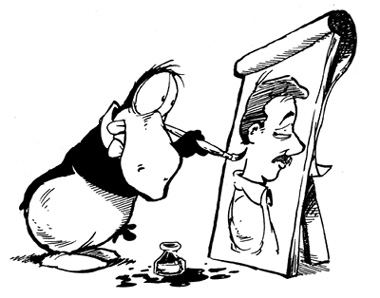Berkeley Breathed is the Pulitzer Prize-winning cartoonist of Bloom County, Opus, and the author of many children’s books. This is the second part of a two-part interview. The first part is available here.

Listen: Play in new window | Download (Running Time: 39:25 — 36.1MB)
Condition of Mr. Segundo: Searching for penguin brides.
Author Interview: Berkeley Breathed
Subjects Discussed: The rising sales of graphic novels, the future of newspaper comics, reservations about Opus being available in digital form, mass market phenomenons, digital audiences vs. print audiences, the “death” of music, the Beatles vs. Gnarls Barkley, shared audience response, on replacing the cartoonist old guard, YouTube, the Doonesbury motif of characters looking into mirrors, cultural appropriation, Breathed’s rocky relationship with Garry Trudeau, why the first year of Bloom County is uncollected, great cartooning as a synthesis of decent writing and decent illustration, Christopher Hitchens, surreal humanism, the cartoon as populist entertainment, the poor reception to Outland, why the kids from Bloom County have not appeared in Opus, the inadequacies of reader reaction via email, the origins of Oliver Wendell Jones and African-American characters in comics, the Banana 6000 and Apple’s advertising, and being ripped off by Microsoft.
EXCERPT FROM SHOW:
Breathed: We had readerships of 50 to 100 million people in the ’80’s and ’70’s for a given piece of entertainment — a single strip. Same person in Kentucky is going to be reading it. It’s the same person in L.A., New York City. You’re not going to have that. Instead of having seventy-five comic strips with readerships of 20 to 100 million, you’re going to have thousands of comic strips with readerships of several hundred to a thousand. That’s a sea change in its effect on society. And the pop culture, I think, has an effect. The unifying aspect of pop culture, I think, is overlooked. And we’re losing that. We’re not all listening to the same music. We’re not all reading the same cartoons. We’re not laughing at the same joke across the country. It’s a unifying aspect of our nation that’s passing.
Listen: Play in new window | Download (Running Time: 39:25 — 36.1MB)
This is a great interview. I believe I may have listened to this before — either that, or I’ve heard an interview with another artist or — please excuse the following term for the moment — “old media” spokesperson with similar views to Berk’s.
First off: I *love* Opus. I’m 37 now, and though I remember Bloom County, I was too young to really understand the comic. I was drawn to its artwork, though, as I was similarly drawn to both Outland and Opus.
I hesitate labeling Berk as “old media”, but that’s how he comes across. Listening to the interview, it’s apparent that he’s well aware of his sounding (as he describes) like “the old man waving the cane”. I don’t see Berk as much older than me but when you listen to this interview you can definitely sense a generational gap. It’s obvious that he laments the transformation of media. I’m not saying he’s opposed to changes in technology; he simply doesn’t *seem* to enjoy the democratization of media (referring to it as the “flip side” of what he seems to prefer, which I might describe as the dictatorship of media).
Like Berk, I sometimes wax nostalgic over the days when a work of art could, with the support of various media outlets, become a cultural phenomenon. Yet I prefer these days, and the days yet to come — a time in which Big Media (as some refer to it) matters less. Opus is fantastic but there are some other fascinating comics that are currently delegated to “indie” status because they aren’t receiving exposure in “traditional” Big Media outlets.
Berk knows this but he seems to prefer everyone to be on the same page, for the country to be reading the same comic every Sunday, to be watching the same late night television programming. I don’t think he would dispute this. Unfortunately, times have changed and Berk — an artist, no doubt — wants to be a populist artist and an indie artist at the same time. That is, he wants to appeal to a wide — no, *huge* — audience, yet at the same time exercise his more experimental leanings. Can’t have it both ways, Berk. Love you, man, but you can’t have it both ways.